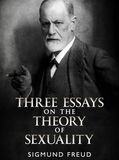

Three Essays on the Theory of Sexuality
Pagine: 151
The traditional story about the historical origins of Freudian psychoanalysis implies that the Oedipus complex was part of Freudian theory from the very beginning. However, in this first edition of Three Essays on Sexuality, first published in 1905 and never before translated into English, we find no reference whatsoever to the Oedipus complex. Is there a Freudian psychoanalysis that is not Oedipal? This first version of Freud's Three Essays articulates just such a non-Oedipal psychoanalysis. As such, it still has a definite 'emancipatory' potential; Freudian psychoanalysis is not Oedipal in its very nature. It is only from 1909 onwards that psychoanalysis tends to become a sophisticated defence of what Freud first called the 'popular opinion' about sexuality. It was precisely this 'popular opinion' that psychoanalysis originally was meant to deconstruct. Is there a Freudian escape - that is an escape that remains not so much within Freudian orthodoxy, but at least within its inspiration - from this impasse? If Freud has respected more systematically his own original thesis, could it be that the Oedipus complex wouldn't be the shibboleth of psychoanalysis?Not only is this first edition less Oedipal than is generally believed, but it also contains the elements for thinking a 'non-Oedipal' psychoanalysis; a Freud against Oedipus.
Pubblicato da: Stargatebook
Come funziona?
Crea un account.
Crea il tuo account gratuito qui.
Scarica l'app Voxa
Disponibile per Android e iPhone su Google Play o su App Store.
Prova gratuita per 7 giorni
Hai accesso a 100.000 titoli e all'intera esperienza Voxa.
Ascolta offline
Scarica i tuoi audiolibri preferiti e goditeli anche senza connessione a Internet.

